
Live long and prosper
We combed the latest research and talked to health, financial, and wellness experts to uncover the most important things you can do to keep the spring in your step and a healthy balance in your bank account through the years. Read on for some great advice.

Take stock
Write down three things you’re grateful for each day. This simple exercise helps rewire your brain for greater happiness. Studies show that people who are grateful report better sleep, stronger relationships, fewer aches and pains, and lower blood pressure. Shawn Achor and Michelle Gielan, happiness researchers who are married to each other, share positive things about their days with one another. “It’s a simple two-minute habit that allows us to learn about high moments and feel more connected,” Gielan says. These 16 quotes on gratitude will help remind you to be grateful every day.

Use the snowball method
The average American has more than $5,000 in credit card debt. Not sure how to start tackling yours? Pay off one balance at a time. Studies show that polishing off your smallest balance first can motivate you to pay off bigger debts (a strategy called the snowball method). That worked for Sami Womack, a mother of three who blogged about her family’s three-year journey to pay off their debt at asunnysideuplife.com: “When we first added up our debt, our four smallest debts totaled less than $100, and I realized I could pay them off right away,” says Womack, who is now a budgeting coach. “It was a quick win, and it felt so good that I was motivated to do more.” These are the personal finance tips you were never taught—but need to know.

Hit the (cold) showers
It’s no fun when you’re in there (brrr!), but exposing your body to less-than-comfortable temperatures is an antiaging tactic that also improves mood and boosts immunity, says Harvard University geneticist David Sinclair, PhD, author of Lifespan: Why We Age—and Why We Don’t Have To. Being cold turns on longevity genes and generates healthy brown fat across your back, which may protect against obesity, Sinclair says. “I go to the gym most weekends with my son; we lift weights, jog a bit, and hang out in the sauna before dunking in an ice-cold pool.”

Drive an old car
The bigger point is to live below your means. When Sarah Stanley Fallaw, PhD, and her father, Thomas Stanley, PhD, researched the book The Next Millionaire Next Door, they learned that many wealthy people are quite frugal. “What really differentiates people who accumulate wealth from others is not their income but that they don’t spend everything they earn,” Stanley Fallaw says. Most millionaires don’t drive luxury cars, for example, and 28 percent drive a car that’s at least six years old.
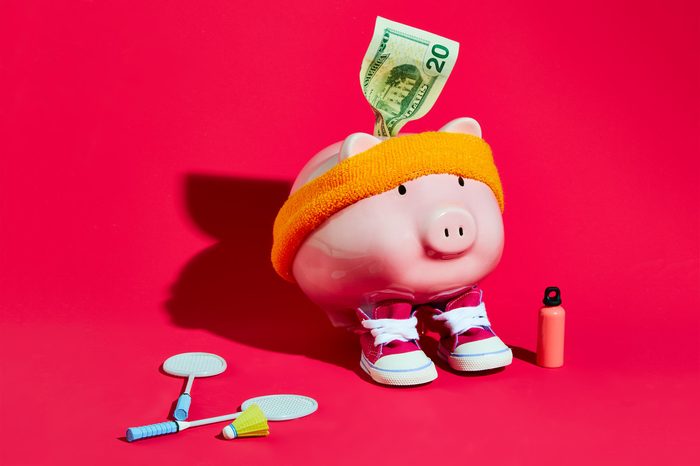
Get moving
Yes, you’ve heard it before, but decades of research show that exercise improves your health, lifts your mood, and lengthens your life. In fact, Harvard researchers found that as little as 15 minutes of moderate physical activity a day can increase your life span by three years. It also appears to keep your body young on the inside: Ball State University researchers found that people in their 70s who were lifelong exercisers were indistinguishable in many ways from healthy people 30 years younger.
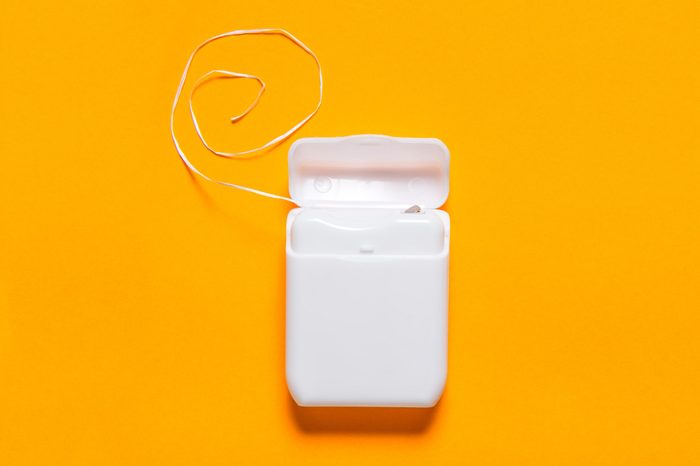
Floss every day
Flossing doesn’t just clean your teeth and freshen your breath. One study published in the Journal of the American Heart Association found that older women with a history of periodontal disease had a 12 percent higher risk of early death, and those who had lost teeth had a 17 percent higher risk. Research shows that people with gum disease are significantly more likely to suffer from heart attacks and strokes, and there are also links to pancreatic cancer, erectile dysfunction, and Alzheimer’s disease. Scientists believe harmful mouth bacteria can enter the bloodstream, causing inflammation and other damage, and the best way to clear them is with a daily floss.

Find wasted money
Look at your bank and credit card statements or use an app such as Mint to track your spending for a few months, Womack recommends. You may be surprised. “The first time I went back and looked at our spending records, it was a big kick in the stomach,” she says. “We were spending $800 a month on eating out … Crazy!” Once you know where your money is going, you can set goals, create a budget, and start saving. Rich people won’t tell you these secrets about their lives.

Get fresh air every day
Going outside, especially into a green space, is an easy way to boost your well-being and mental state, says Lori Gottlieb, a psychotherapist and the author of Maybe You Should Talk to Someone. “I actually make it a point to go outside every day,” she says. “I’ll walk around the block, breathe, and look at the sky. It’s like pushing the reset button.” Spending time in nature has been proved to lower stress and blood pressure, and University of Alabama researchers found that spending just 20 minutes in a park led to a 64 percent increase in life satisfaction—even if you just sit on a bench.

Think about long-term care
About 70 percent of us will need long-term care at some point. Standard medical insurance doesn’t cover it, and the costs are mind-boggling. Consider: A private room in a nursing home costs $92,345 per year on average. Long-term care insurance is one option, but it can be expensive and difficult to qualify for. Author and financial planner Thomas C. Corley says he likes new hybrid policies that combine life insurance with long-term care coverage. You can use the death benefit for long-term care costs, but if you don’t need help, your heirs get the payout when you pass away.
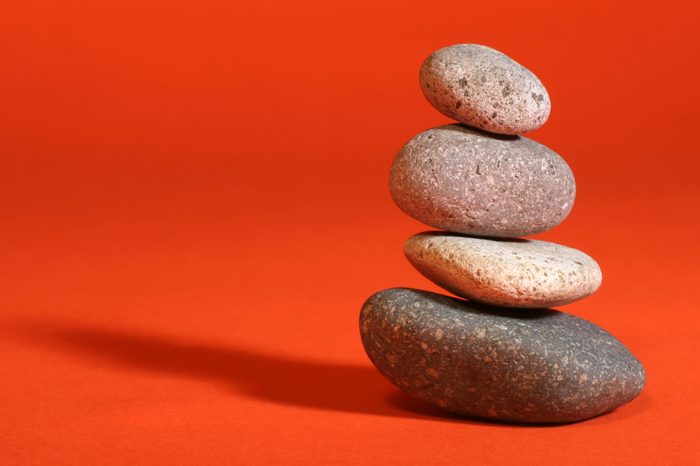
Take a breather
Can’t get outside today? A simple way to feel happier, reduce stress, and raise your energy is to take short time-outs throughout the day to focus on your breath. It’s easy: Simply close your eyes and take a few deep, slow inhales and exhales, focusing on nothing else. The benefits are physical and mental—studies show that controlled deep breathing slows your heartbeat, relaxes your muscles, and stabilizes your blood pressure.
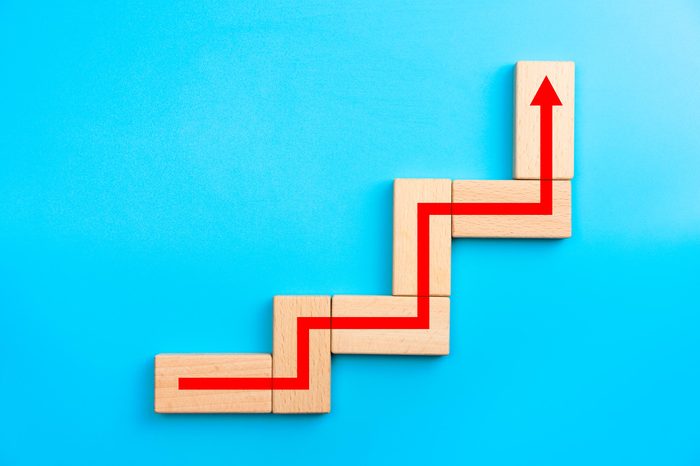
Beware of actively managed investments
Low-fee index funds track the returns of an investment index, such as the S&P 500, and they cut your risk because you’re investing in hundreds of stocks instead of just a few. They also outperform most actively managed funds over time. When Leif Kristjansen of Toronto first started investing, he spent hours analyzing annual reports and picking individual stocks and funds. “Then I realized my index funds were doing as well as my heavily researched investments, and they took no brainpower,” he says. Now Kristjansen, who retired at age 32, invests almost entirely in index funds.
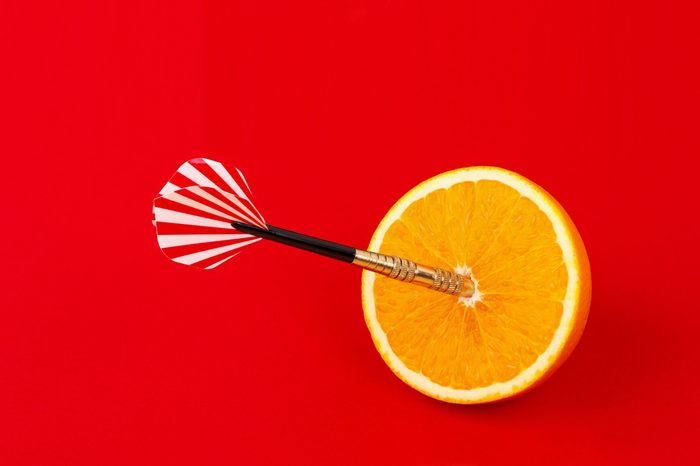
Know why you get up
Have a sense of purpose and you’ll live longer. That’s what a study of 6,985 adults published in May 2019 found. This positive mind-set seemed to be as beneficial as exercising regularly and not smoking, and the outcome held true even when the researchers accounted for factors such as income and education level. Celeste Leigh Pearce, PhD, the University of Michigan epidemiologist who conducted the study, told NPR that it doesn’t matter what your life purpose is, as long as you have one: “For some, it might be raising children. For others, it might be doing volunteer work,” she says. “Where your life fulfillment comes from can be very individual.”
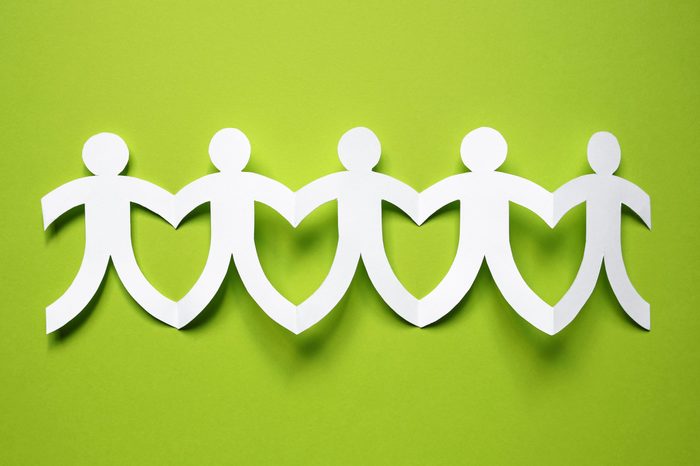
Volunteer
Working in a local soup kitchen, tutoring a needy student, and helping the sick are all good for your health and happiness—just don’t overcommit. Volunteering regularly (at least once a month) is associated with increased life satisfaction and lower rates of depression, and it may reduce early mortality rates by 22 percent, according to a review in BMC Public Health.

Use this mental trick to spend less
“Pretend for a moment you are at the end of your life, and ask yourself, ‘What was important to me?’” says Chris Reining, who saved enough to retire at age 37 by cutting his spending drastically and investing the savings. “You’re not going to say the bigger house, the fancier car, or the more glamorous job. You’re going to say things like family, relationships, happiness. It’s life-changing when you realize that most things won’t make you happy, so the trick is learning to be satisfied with what you already have.” These money-saving tips actually don’t pay.

Work on your balance
Falls are one of the most overlooked health threats facing older adults, says Alan Castel, PhD, principal investigator for the Memory and Lifespan Cognition Lab at the University of California, Los Angeles, and author of Better with Age: The Psychology of Successful Aging. According to the CDC, the death rate from falls rose 31 percent from 2007 to 2016. Taking yoga or tai chi has been found to be especially effective, but you can sharpen your balance in less formal ways. “I practice it every morning when I am brushing my teeth by standing on one leg for one minute, and then switching,” Castel says.

Stay married
With marriage come big gains in happiness, health, and longevity, says Robert Lerman, an economist at the Urban Institute. One large-scale review found that single men have a 32 percent higher risk of premature death across a lifetime compared with their married peers; single women have a 23 percent higher risk. Marriage provides important social and economic support—even with things as simple as reminding you to eat better, go to the doctor, or take your medicine, Lerman says.

Start your day earlier
When Corley studied the routines of 177 self-made millionaires for his book Rich Habits, he found that nearly 50 percent of them woke up at least three hours before their workday actually began. He says the research inspired him to wake up around 5 a.m. every day to read, exercise, and accomplish daily goals without interruption. “Life has a way of disrupting the best-laid plans, so this is a way to ensure I get the things done that make me happy,” he says. These are the things successful people do every morning.

Explore a side gig
You can spend hours trying to figure out how to cut your spending. Or you can find a way to bring in some extra cash, says Brandon Renfro, PhD, a certified financial planner in Marshall, Texas. These days, there are dozens of ways to earn money on the side: rent your place on Airbnb, drive for Uber, sell your handiwork online. “Most people have a skill set they can monetize, whether it’s writing, speaking another language, or building websites,” says Renfro. His side hustles include owning rental property and serving as a captain in the Army National Guard.
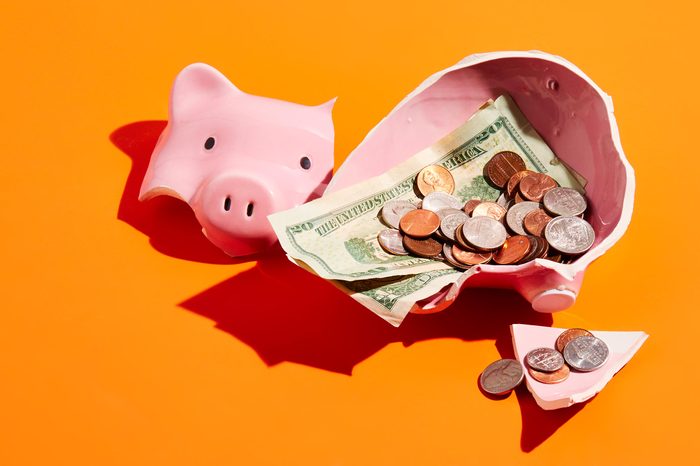
Wait before you buy
If you’re tempted to buy something expensive, force yourself to wait 24 hours, suggests Janet Bodnar, editor-at-large of Kiplinger’s Personal Finance and author of Money Smart Women. “Once I sleep on it, I have a clearer head and I may realize I didn’t really like it that much anyway,” she says. Waiting can be especially effective for online shopping, as many websites are designed to encourage impulse buying. Check out the habits of people who are great at saving money.
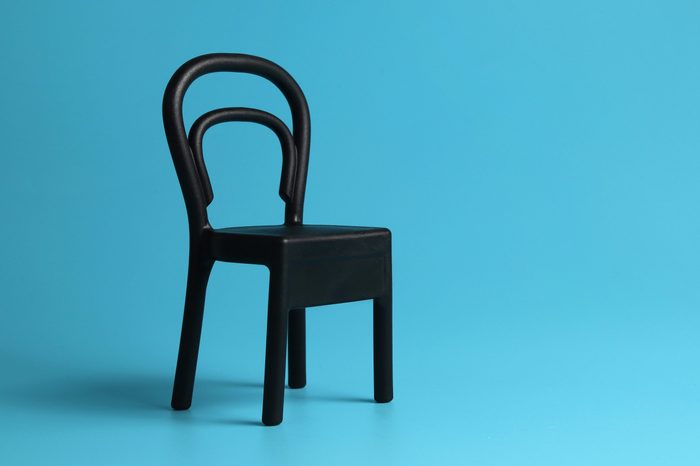
Don’t sit too long
The more time you spend sitting, the more likely you are to develop diabetes or heart disease and die prematurely—and that’s especially true if you don’t exercise regularly, says Abby King, PhD, a professor of health research and policy at Stanford University School of Medicine. A 2017 study that tracked 7,985 adults over age 45 found that those who sat the most had nearly twice the risk of dying over a four-year period compared with those who sat the least. Lower your risk by getting up every 30 minutes or so to take a walk. “I wear a watch that reminds me to stand up and move at least once an hour,” King says. “I’ll go get a drink of water or walk around a bit.”
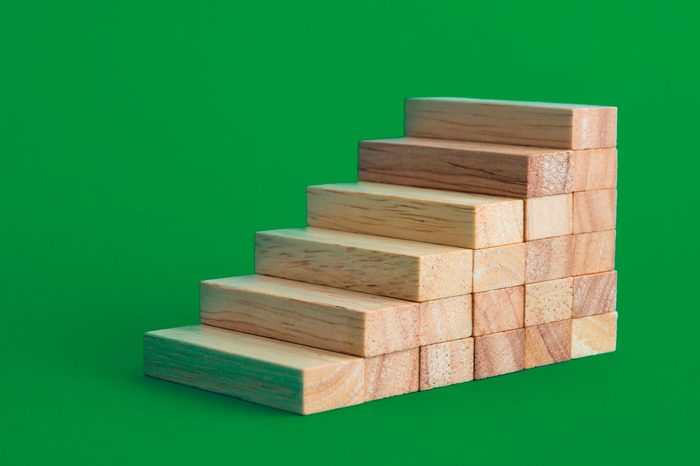
Find little ways to rev up your heart rate
Take the stairs, park a little farther away, or take a brisk walk at lunch. Writers of new federal activity guidelines intentionally set no minimum amount of physical activity you should get each day because new research shows that just a few minutes here and there pays health dividends, says King, who was cochair of the 2018 Physical Activity Guidelines Advisory Committee. “The thinking used to be, Gee, I could walk to the coffee shop, but it’s only six minutes, so it won’t count,” King says. “Now I’ll take that walk because I know there are immediate benefits in terms of anxiety, mood, and mental sharpness, as well as some longer-term benefits.” In fact, researchers at McMaster University found that just 60 seconds of vigorous stair-climbing boosted cardiovascular fitness.

Automate your retirement savings
You can’t count on someone bailing you out if you fail to put away money now for the future life you want to live, says Sallie Krawcheck, CEO and cofounder of Ellevest, a digital investment platform. Krawcheck recommends having a set amount every month diverted from your paycheck to a tax-advantaged retirement fund, such as a 401(k) or an IRA, so you never get a chance to spend it. Then, every time you get a raise, up your contribution. Aim to set aside 10–15 percent of your income. “It’s unsexy. It’s boring. But a dollar invested in a 401(k) is worth more than dollar in a regular investing account because of the tax benefits,” Krawcheck says. “That’s how you become the millionaire granny.”

Get enough rest
There’s a growing amount of data linking sleep deprivation with disease and other health problems, says Scott Trappe, PhD, director of the human performance lab at Ball State University. Studies show that a lack of quality sleep zaps your energy, ups your stress level, hurts your memory, weakens your immune system, and makes you more anxious and depressed. And there’s this: In one study, regularly sleeping less than seven hours a night was linked to a 12 percent increased risk of early death.

Get a new hobby
Doing crosswords and playing brain games are fine, but learning a new skill is your best bet to keep your mind sharp as you age, according to a study published in the journal Psychological Science. In the study, older adults who spent three months learning a complex skill such as quilting or digital photography improved their memory and cognitive function significantly compared with those who only socialized or did puzzles. The key, the researchers wrote, is to participate in a complex activity that requires active learning, such as studying chess strategy, taking up a new instrument, or enrolling in Spanish lessons. Here are some simple steps to finding the right hobby for you.

Eat plants, not stuff manufactured in plants
Foods that come in trays, boxes, or bags usually have little nutritional value and a high calorie density, says Robert Lustig, MD, an endocrinologist at the University of California, San Francisco, and author of Fat Chance. A recent study in JAMA Internal Medicine found a link between ultraprocessed foods such as chicken nuggets, instant noodles, and packaged baked goods and a higher risk of early death from all causes, especially cancers and cardiovascular disease. The study found that for every 10 percent increase in ultraprocessed food consumption there was a 14 percent increase in the risk of early death, even after adjusting for health, behavior, and socioeconomic characteristics. “If I could suggest one change to someone’s eating habits for health, it would be to eat real food,” Dr. Lustig says.

Buy memories, not stuff
If you’re trying to decide between a Caribbean cruise and the latest iPhone, choose the cruise. Researchers have found that you’ll derive more happiness from spending money on experiences rather than on physical objects. Why? For one thing, studies show we get used to new material goods quickly, so the pleasure they bring disappears quickly. After an experience, on the other hand, you get a little burst of joy each time you remember it.
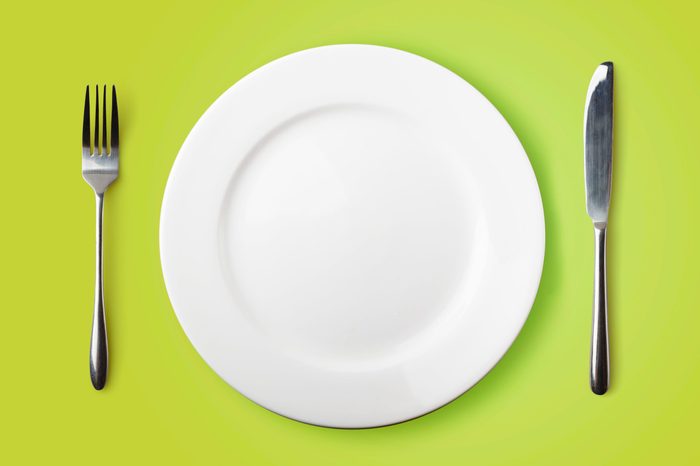
Skip one meal a day
There’s considerable research on animals that shows the health benefits of cutting calories significantly, and the latest studies suggest that it may be beneficial for humans too. A study published in Cell Metabolism in 2018 indicated that cutting calorie intake by 15 percent over two years slows aging and may protect against diseases such as cancer, diabetes, and Alzheimer’s. “One surefire way to stay healthy longer, one thing you can do to maximize your life span right now, is this: Eat less,” Sinclair says. “I try to skip one meal a day or at least make it really small.”
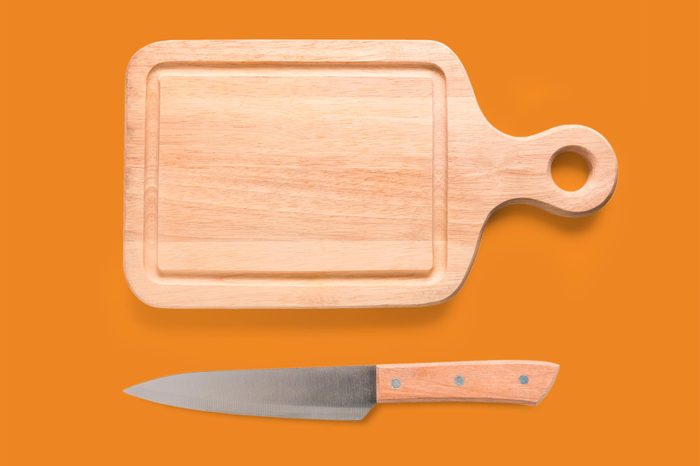
Learn to cook
When you make meals at home, you save lots of money. And people who eat more home-cooked meals consume fewer calories and are less likely to be obese or develop chronic diseases than those who eat out frequently. In one study, people who cooked at home more than five times a week were 28 percent less likely to be overweight than those who cooked at home fewer than three times weekly. What’s more, the more-frequent home cooks were 47 percent more likely to still be alive ten years after the study.

Hang out with the right people
If you want to fix your bad habits, make sure your inner circle includes people you want to emulate, says Corley. His research shows that those struggling financially have more relationships with toxic individuals, while wealthy people surround themselves with upbeat, successful people. Corley says he launched a local business association as a way to expand his own social circle. You could also join a networking group, volunteer at a nonprofit, or seek out a mentor.
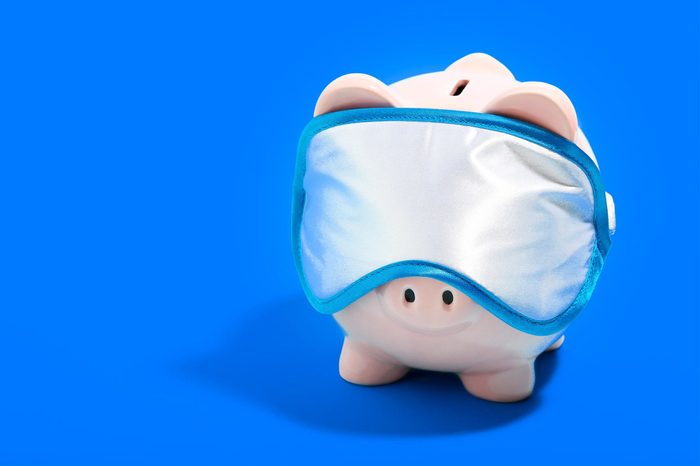
Make money while you sleep
If you have some cash saved up, consider investing in assets that will bring in some passive income, such as a rental property or dividend stocks. Tayvon Jackson, a financial adviser in Washington, DC, invested in ATMs and placed them in popular clubs and barbershops. “Every time someone uses my machine and pays the fee, $3 goes into my account,” he says. “I have over 30 machines, and each one has a job; one pays my phone bill, one funds my travel, and another pays my life insurance. It’s an amazing feeling to have all these little workers growing my wealth.” Test out these ways to save money that you probably haven’t tried yet.